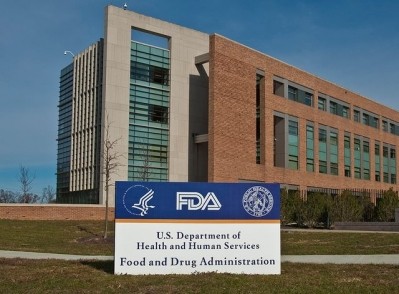Dietary supplement industry shift takes hold in 2015

The food and dietary supplement industries each have new and potentially daunting challenges facing them, while consumers are increasingly demanding a level of transparency that could necessitate a level of oversight that makes many companies bristle. So let’s recap a few of 2015’s more salient events as they relate to supplements.
The world shifted for the dietary supplement industry when the New York Attorney General issued a press release on February 3, 2015 asking “major retailers to halt sales of certain herbal supplements as DNA tests fail to detect plant materials listed on majority of products tested.” As politicians eagerly embraced new ‘evidence’ that supplements could cause harm, were mislabeled, and the industry needed reform, industry cried foul over the imposition of the unproven, and frankly impossible to substantiate, use of DNA bar code testing.
The Organic & Natural Health Association met with the New York Attorney General, where we agreed to disagree on the effectiveness of this testing approach, instead emphasizing that testing, in whatever form, is a snapshot of one moment in time along the continuum of actions that constitute supply chain integrity. We emphasized that raw ingredient suppliers are not required by law to adhere to cGMPs and announced our intention to file a formal Citizens Petition requesting the FDA to impose these standards. Ours was the first in a series of trade association meetings with the AG. This was just the first in a string of actions that would rock the dietary supplement industry.
This time, with the sky actually beginning to fall, atonal cries of “we are a regulated industry,” “DNA bar coding doesn’t work,” and “FDA isn’t doing its job” weren’t landing on deaf ears – they were feeding a frenzy. In March, the republican AG of Indiana and colleagues in 14 additional states joined New York in a bipartisan coalition that in April demanded Congress increase federal oversight of the industry, including supporting Organic & Natural’s Citizens Petition. GNC inked an agreement with New York to implement DNA bar code testing, only to find itself being sued in October by the Attorney General of Oregon for knowingly selling products spiked with the illegal drugs BMPEA and picamilon. Solution sets abound at the moment.
Along with the Organic & Natural Citizens Petition, there are calls for an office of Dietary Supplements at the FDA to give FDA enforcement muscle, the registration of products (akin to that of OTCs) in an effort to weed out bad players and bad ingredients, building capacity and documentation for DNA bar code testing, and supporting the long-awaited Food Safety Modernization Act regulations, that some believe will rectify quality and identify problems in the supply chain. Only one thing is clear at the moment: there is no consensus on a path to move forward.
Bright spots
There were also some extremely bright spots in the past year. In September, Bayer prevailed in a lawsuit filed by the U.S. Federal Trade Commission that accused the company of making unsubstantiated claims for its product,Phillips' Colon Health. The FTC argument was familiar. Label claims that the product could “defend against” occasional constipation, diarrhea, and gas and bloating “implied” the product could cure those conditions. Industry has long criticized the FTC for the lack of transparency, as well as the Agency’s position that only randomized, placebo-controlled, double-blind clinical trials (aka RCTs, aka pharmaceutical research), count as credible research. In this case, the judge made it clear the law does not require RCTs.
“The Government’s position that Laine-Level RCTs are required is found nowhere within the four corners of the consent decree, but only within the expert report that was filed with the Government’s motion for contempt," the judge wrote. “The Consent Decree that Bayer agreed to in January of 2007 speaks only of ‘competent and reliable scientific evidence.’ The Consent Decree does not mention randomized controlled clinical trials of any kind, let alone say they are required. In the seven years after entering the Consent Decree, the government never told Bayer or anyone else in the industry that drug-level trials or Laine-Level RCTs were required."
Bayer produced nearly 100 studies to support its product claims, and precedent now exists for what constitutes constant and reliable scientific evidence.
Another exceptional action taken this year occurred on November 17 when the Justice Department, in partnership with an alphabet soup of federal partners, filed civil and criminal charges against 100 makers and marketers of weight loss and performance products that are alleged to be adulterated and/or make disease claims. At long last, industry witnessed a full out enforcement effort against the bad guys.
We had a good news/bad news kind of year, leaving no time for licking wounds or running a victory lap. Bad products remain on shelves, FTC is likely to continue to overreach. The push for DNA bar code testing for herbs is not likely to go away. I think it’s safe to say if there was a vacuum, it’s now close to being filled – Just not with the bold leadership, advocacy, additional research and transparency essential to securing the confidence of consumers and a robust marketplace. Here’s hoping for collaboration and consensus in 2016.
More on Organic & Natural at www.organicandnatural.org follow on Twitter @OrgNatHealth or www.facebook.com/organicandnaturalhealthassociation.
Biography: Karen Howard, CEO and Executive Director of Organic & Natural Health Association, is a visionary and results-focused leader who has spent more than 30 years working with Congress, state legislatures and healthcare organizations to develop innovative healthcare policy and programs. She has held a variety of executive positions, including serving as professional staff for a Congressional committee, and has policy expertise in the diverse areas of integrative and complementary medicine, managed care, healthcare technology and mental health. An advocate at heart, she has worked to strategically advance the mission and vision of organizations through effective advocacy and strong collaboration.








